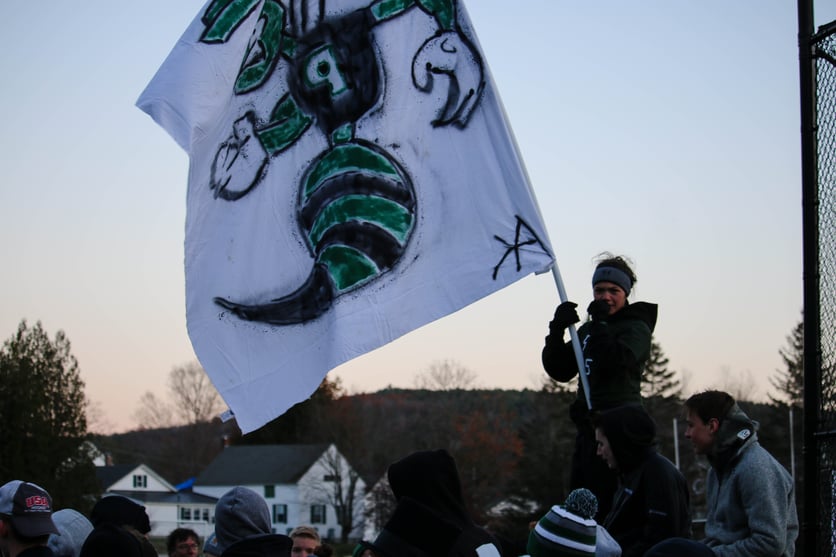On a run through Proctor’s cross country trails earlier last week, a Ted Radio Hour played on my headphones. The conversation, facilitated by Guy Raz, discussed Maslow’s hierarchy of needs and how the groundbreaking research of Abraham Maslow in the 1950s laid a foundation for modern psychology (listen to the full show here). As I plodded through the woods on the cold November morning, admiring the rusty oak leaves for their perseverance and looking ahead to Holderness Weekend, my thoughts turned to the intersection of Maslow’s hierarchy and our work at Proctor.
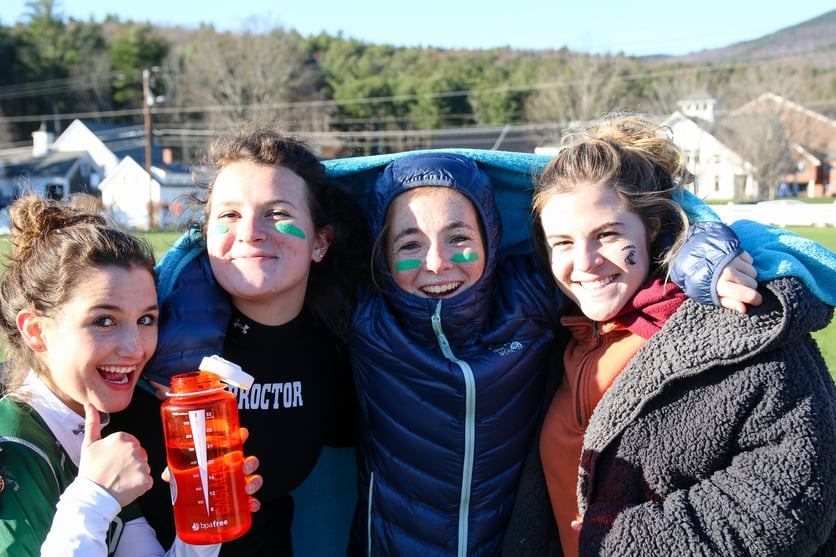
As everyone who took a Psych 101 course knows, the base of Maslow’s pyramid consists of basic needs (food, sleep, nutrition, security, and safety). Working with a group of 370 adolescents, these physiological needs are ALWAYS at the forefront of our decision-making:
- How do we make sure students are eating balanced meals in the dining hall and not always crossing the street to grab snacks and unhealthy options at Jakes minimart or Pizza Chef?
- How does our homework load and academic schedule intersect with our students’ need for sleep?
- How do we make sure our students feel physically safe and secure at Proctor?
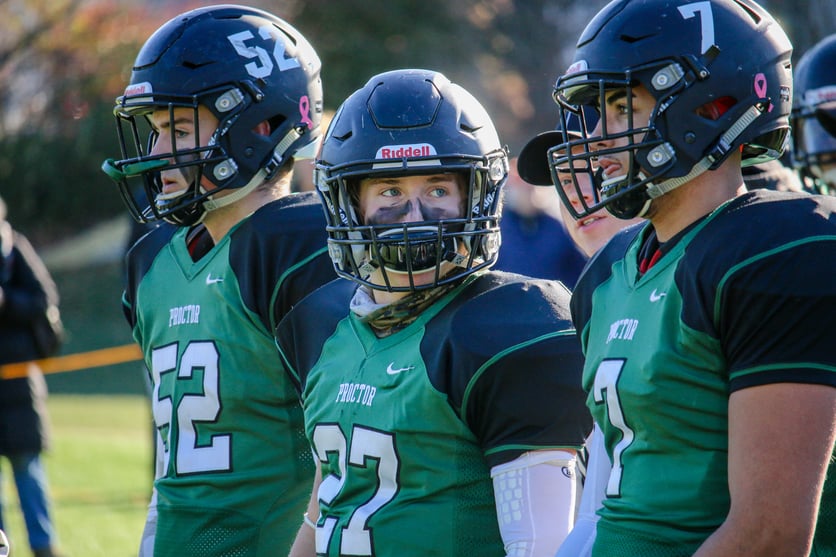
While the Ted Talks on these basic needs were fascinating, my attention was piqued as journalist Sebastian Junger discussed the concept of tribes (or extended families) and our need to belong to something, to someone, other than ourselves. This second tier of Maslow’s pyramid - the psychological needs of belonging, friendship, and self-esteem - was on full display over the past week at Proctor, and speaks to the true power of the boarding school experience.
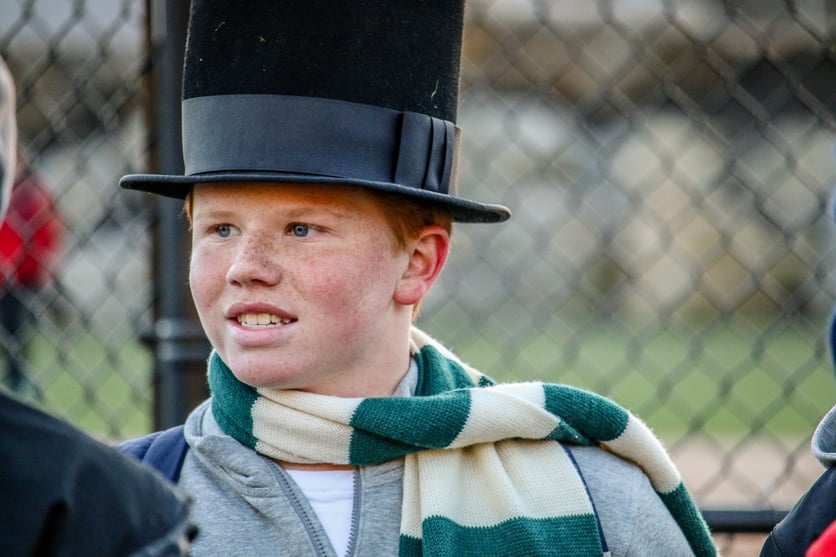
This sense of belonging is something we all crave. We always have. Humans are tribal by nature and have been conditioned over thousands of years to trust and rely on groups of 30-40 people as our “tribe”. As Junger notes, our post-industrial society has structurally undermined our ability to form these tribes in our own lives. That's right, our own ability to surround ourselves with communities that will help meet our needs has been eroded by society itself. Sure, some of us find faith communities, neighborhoods, or work-related friendships, but very few of us truly have an extended family or tribe in whom we deeply trust and are able to unequivocally rely on for support.
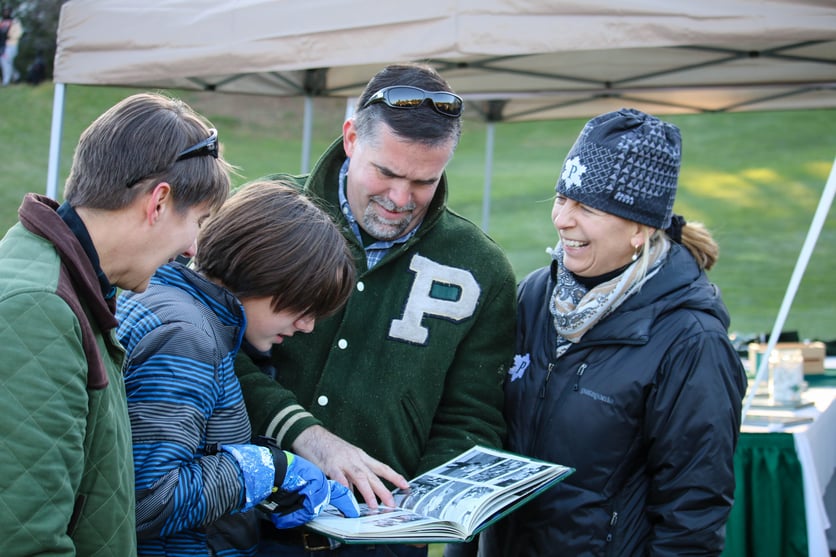
The Proctor Family spans generations: alums who came back for Holderness Weekend not only wore their old letter jackets, but regaled their children, spouses, and current members of the community with their tales of old.
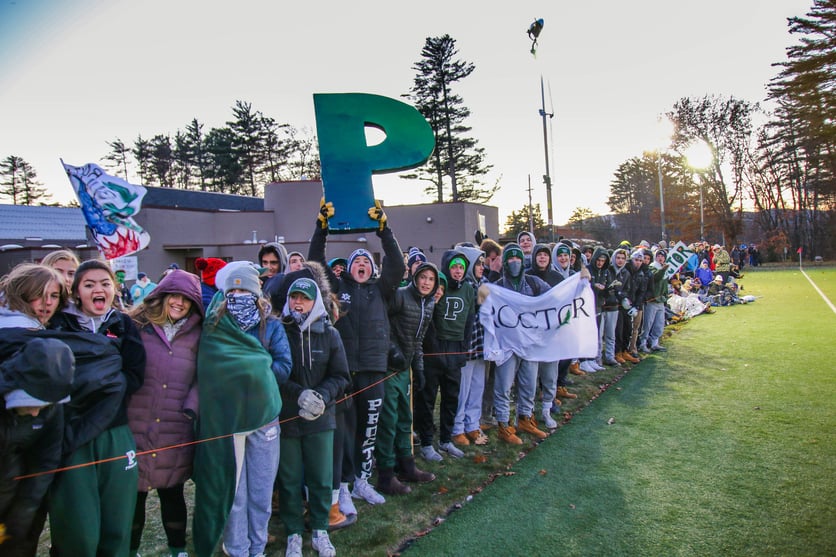
Junger writes about how the military is one place where this sense of belonging, a brotherhood/sisterhood, becomes almost irreplaceable as soldiers crave the bonds they form during combat (we asked some of our active duty alumni about these bonds and they told some beautiful stories). Boarding schools are another societal exception where we are exceedingly successful at meeting the psychological needs of our family, students and adults included, because of the close-knit nature of our community.
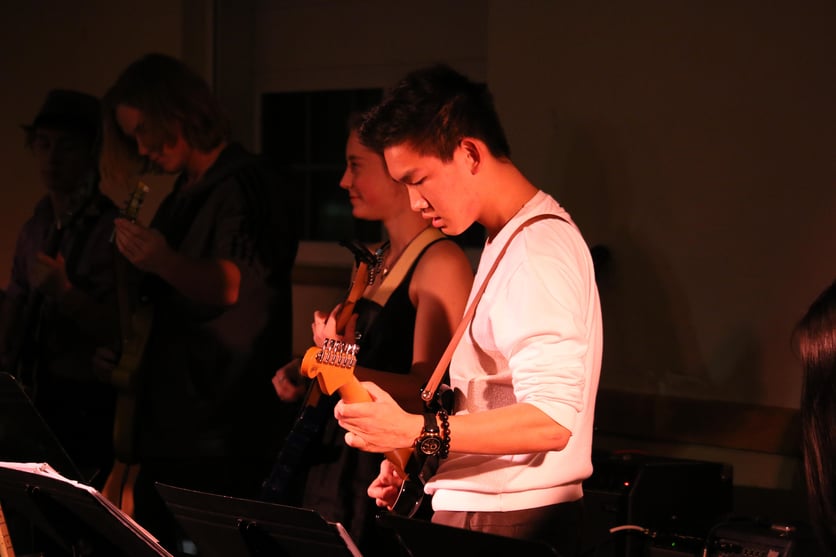
Jazz/Rock put on a stellar performance in the Wise Center Saturday night in front of a big crowd at the Wise Center. Rewatch the performance here.
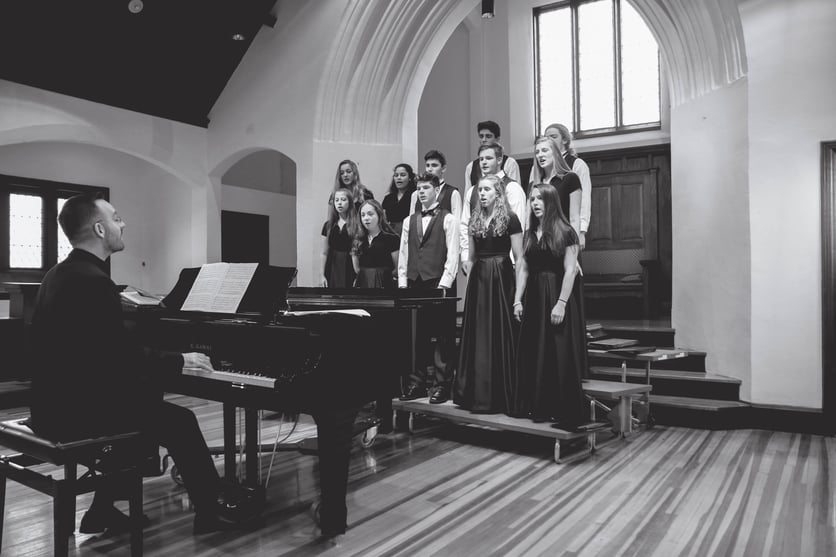
Sunday's Vocal Music Ensemble performance capped a great weekend on campus as students stepped into the unknown and performed solos, brought tears to our eyes, and showed us the power of the human voice. Rewatch the performance here.
We pursue our educational mission to unlock learning for our students through the forming of meaningful relationships in the classroom, on the athletic field, in the art studio, in the dormitory, and in advisories. These relationships with and among students serve as the foundation for support. They give licence to the development of the trust necessary for the learning process to take place (go back to Maslow’s hierarchy if you want confirmation on this belief!). Our family, both Proctor as a whole and the subgroups that organically form within the school community, meets the psychological needs Maslow knew were central to living a fulfilling life. We are heard. We listen. We trust. We risk failure. We take pride in seeing each other succeed. These are feelings we often take for granted at Proctor, but outside of our bubble, they are attributes of a community that are exceedingly rare.
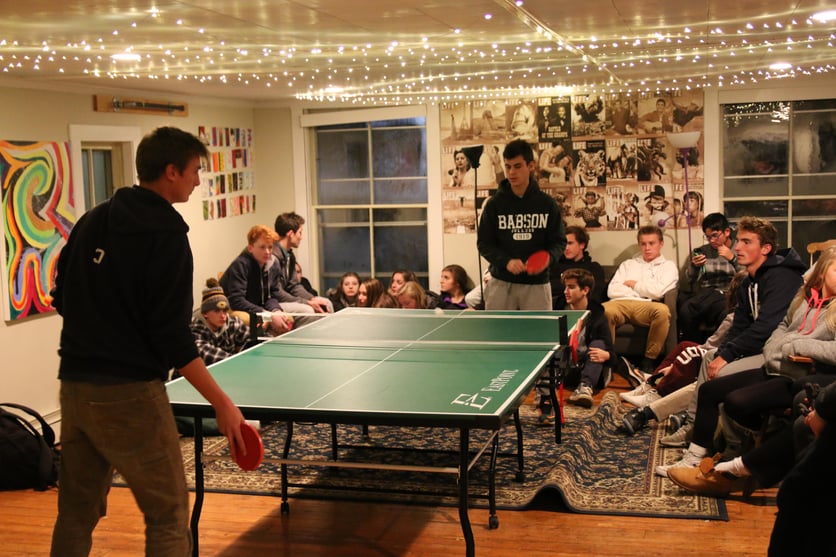
We talk often about the benefits of boarding school and highlight access to remarkable programs: the art programs on display over the past week, the study abroad experience, athletic teams (did we mention we won Holderness Weekend 6-4 over the Bulls!). But in reality, the most powerful benefit of boarding school and of a community like Proctor is not a program or shiny new building. It is in the relationships that are formed, the community you gain, and the family that supports you as you navigate life.
